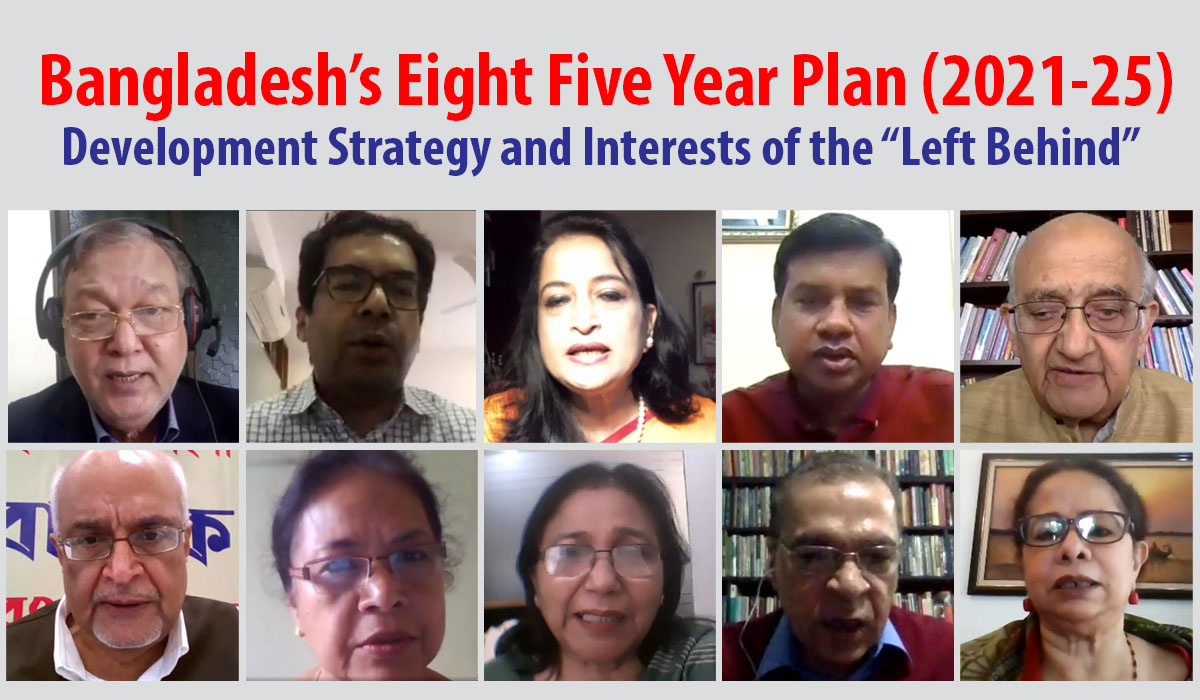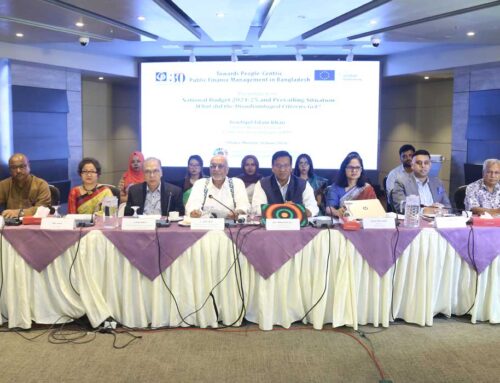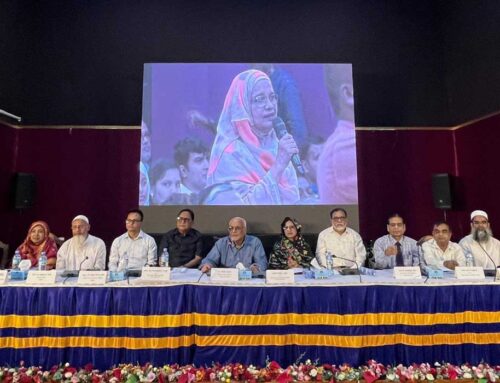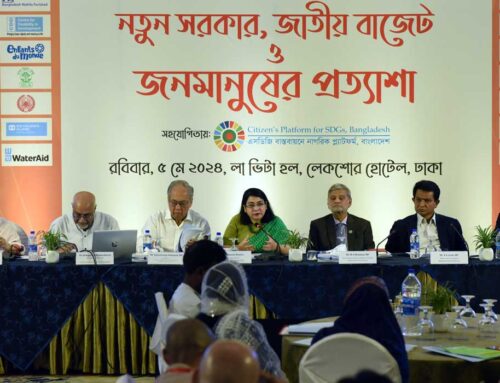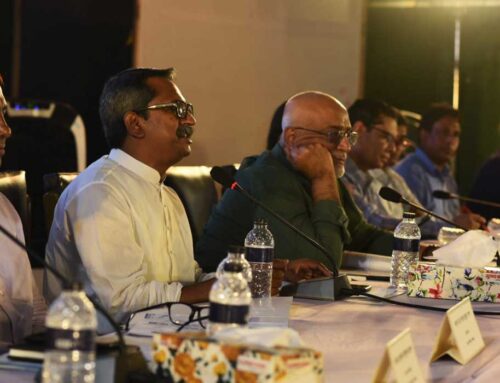During the Seventh Five Year Plan period (2015-2020), Bangladesh witnessed significant development achievements. These include increases in literacy rate, life expectancy at birth (aged 15 and above), rice production, energy production, remittance earning, and sectoral contribution in GDP. In the last five years, along with accelerated economic growth, macroeconomic stability in terms of low inflation and stable exchange rate, improvement in Gender Gap Index, more than one crore people came out of poverty. Despite these achievements, several faultlines were also visible during the last five years.
There have been discrepancies between the targets and the actual outcomes in the total revenue, total public expenditure, fiscal deficit, private investment, exports, remittances and foreign direct investment (FDI). The sectoral share of agriculture and services in GDP decreased while the share of industry sector increased, driven primarily by large and medium manufacturing sector. The marginal contribution of small scale manufacturing highlights the challenge of lack of diversification and lower access of small enterprises to policy inputs and incentives. Meanwhile domestic demand has been driven by public consumption and investment. Private consumption declined while investments stagnated with decreasing contribution of FDI. The poorer households experienced slower consumption growth compared to that of the richer households. Disjuncture between aggregate and disaggregate outcomes lurked in terms of major rural and urban disparity and marginalisation of lower income group. The employment situation has also deteriorated. Aggregate employment target was not achieved, youth unemployment rate is significantly higher than the national average unemployment rate and the unemployment rate of educated youth was even more. Between 2013 and 2019, the primary school completion rates for the lower-middle class and the emerging middle class declined, and it increased for that of the richest. Even the secondary completion rate for the richest group is almost four times higher compared to that of the poorest group in 2019. As for differential performance in health, the nutritional attainment is significantly low, deprivation is more acute in the bottom 20% and also the under-five mortality rate is nearly double in the bottom 20% household compared to that of the top 20%.
These observations came at the virtual multilogue on Bangladesh’s Eight Five Year Plan (2021-25): Development Strategy and Interests of the “Left Behind” organised by the Citizen’s Platform for SDGs, Bangladesh on 10 December 2020.

The keynote presentation by Dr Debapriya Bhattacharya proposed a strategic framework which underscores redefining the development strategy to be pursued by the Eighth Five Year Plan. It emphasized the departure from the so-called ‘growth delusion’ and move beyond the traditional pro-poor declarative focused approach. The Plan should focus on mitigating inequality, social exclusion and vulnerabilities, increasing the productivity growth, bringing about technological transformation, focusing on welfare protection and promoting well-being among others. The Plan should secure macroeconomic stability by increasing focus on mobilising domestic resources through direct taxes and enhancing allocation for quality of education and health services. The framework suggests more active use of fiscal instruments with monetary instruments. Stimulating private investment, including FDI, and aiming towards a balanced global integration should be an integral part of the Plan. The framework also proposes improved effectiveness of public policy and institutions, enhanced transparency through more disaggregated and real-time disclosure of data and information and increased accountability through enforcement social mechanisms.

The event was attended by Hon’ble Members of Parliament, Vice Principal Dr Md. Abdus Shahid, Chairman, Committee on Estimates; Mr Kazi Nabil Ahmed, Member, Standing Committee on Ministry of Finance; Selima Ahmad, Member, Standing Committee on Ministry of Finance; Pir Fazlur Rahman, Member, Standing Committee on Ministry of Home Affairs and Barrister Rumeen Farhana, Member, Standing Committee on Ministry of Law, Justice and Parliamentary Affairs.
Ms Shima Moslem, Joint Secretary, Bangladesh Mahila Parishad; Mr Osama Bin Noor, Co-founder, Youth Opportunities; Professor Dr Tasneem Siddiqui, Chairman, Refugee and Migratory Movements Research Unit (RMMRU); Mr M Monsur Ahmed Chowdhury, Founder Trustee, Impact Foundation Bangladesh; Mr Syed Almas Kabir, President, Bangladesh Association of Software & Information Services (BASIS); Mr S.M. Harun OR Rashid Lal, Executive Director, Solidarity and Mr Ushatan Talukder, Former Member of Parliament, Rangamati were present as panelists in the mutilogue.
Core Group Members Ms Shaheen Anam, Executive Director, Manusher Jonno Foundation; Ms Rasheda K Choudhury, Executive Director, Campaign for Popular Education (CAMPE); Dr Iftekharuzzaman, Executive Director, Transparency International Bangladesh (TIB) and Professor Mustafizur Rahman, Distinguished Fellow, Centre for Policy Dialogue (CPD) were also present. Special remarks were made by Professor Rehman Sobhan, Chairman, CPD.


